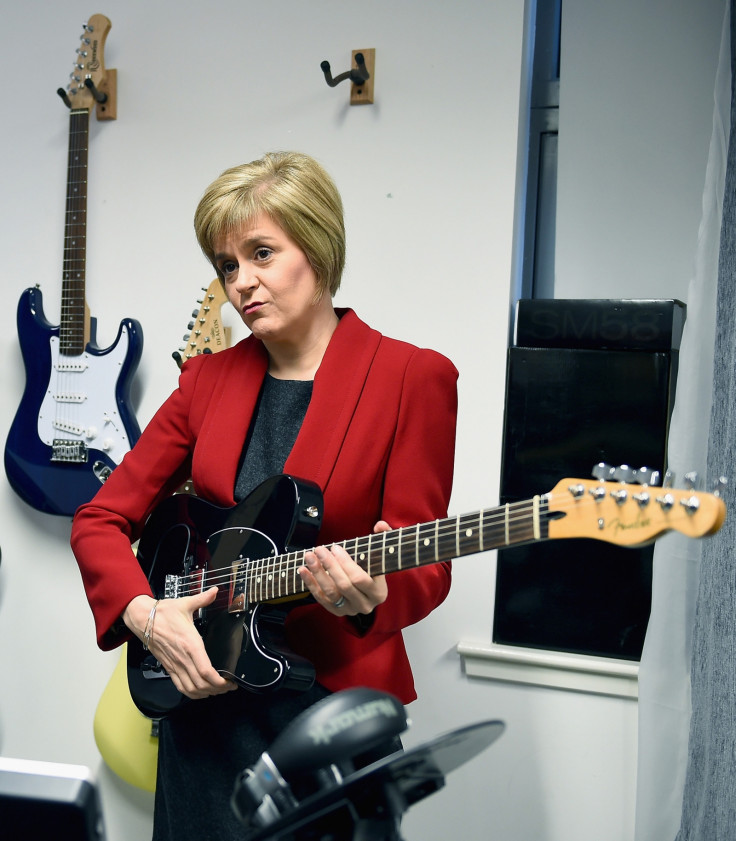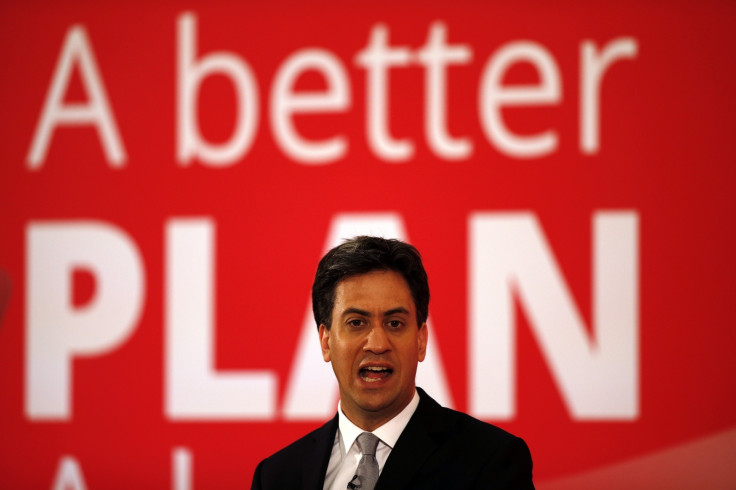Election 2015: If SNP's Nicola Sturgeon really wanted to break up Britain, you'd know about it

It's all about independence for the SNP. Or, at least, that's what the party's opponents would have you believe. Any demand Nicola Sturgeon might make in the post-election negotiations will, we're told, be carefully calculated to bring the moment of independence closer.
When she talks about ending austerity, or abolishing the House of Lords, or even simply reviving the post-study work visa, Labour and the Tories think you should hear only "the break-up of Britain".
It has to be said, though, that the SNP aren't doing a brilliant job of keeping their "secret" plans for independence under wraps. Not only did they hold a referendum on the subject just seven months ago, attracting the biggest turnout in any election since the introduction of universal suffrage, but their internal constitution explicitly lists full sovereign independence for Scotland as one of only two broad aims.
It can probably be taken as read, then, that if Nicola Sturgeon ever wants to talk about independence, she won't be shy about doing so. Conversely, if you catch her talking about the overseas aid budget instead, you can safely conclude she doesn't have independence on her mind at that precise moment.
In case it doesn't even seem conceivable that she has other preoccupations, it might be worth pondering the second aim listed in the SNP constitution, namely "the furtherance of all Scottish interests".
The Trident quandary
That catch-all phrase essentially covers anything that brought SNP members into politics other than independence. A good example is Trident. It's sometimes asked – how on earth would scrapping Britain's nuclear weapons system make Scottish independence any more likely? It wouldn't, is the simple answer.
But most SNP members want Trident off the Clyde every bit as passionately as they want independence. In fact, many of them support independence partly because it would rid the country of nuclear weapons.
If it turns out that the objective can be realised within the confines of the UK, the reaction will be one of stunned delight and relief, not of consternation or a sense that a "tactic" for independence has somehow been thwarted.
Would everyone just pack up and go home at that point? Of course not, because there are many other reasons for wanting Scotland to control its own destiny. But it would certainly be one hugely important thing crossed off the list, and would be well worth it for its own sake.

We don't need a crystal ball to get a sense of how this process might work. There's an example from (relatively) recent history of a nationalist party using its influence in a hung parliament to further the interests of one of the UK's constituent nations, without seeking independence.
After the Lib-Lab pact fell apart in 1978, James Callaghan's government approached Plaid Cymru for support. The informal agreement that emerged would have been described as a full-blown confidence-and-supply deal had it been committed to paper.
Both sides stuck to the bargain faithfully – Plaid voted with the government on all remaining confidence votes, and in return they won several meaningful concessions of practical advantage to the people of Wales. None of them involved constitutional change.
It would have been pointless to even ask for progress on devolution at that particular moment – indeed, by the time the agreement expired, Wales had rejected an Assembly by a 4-to-1 margin, and the issue was dead for a generation.
Devo Max to the Max
That isn't where the SNP is at right now, of course. Scotland may have narrowly rejected full independence for the time being, but the No vote was explicitly tied to the promise of a highly advanced form of Scottish self-government within the UK, characterised by an official Better Together representative as "Devo Super Max".
So when Sturgeon says this election is not about independence, she certainly doesn't mean it's not about achieving self-government. Her stated priorities are ending austerity and making Scotland's voice heard at Westminster.
A big part of the latter is demanding the pre-referendum "vow" is kept in full. That means a maximalist interpretation of the Smith Commission proposals, rather than the minimalist one that the current government has insisted upon. It also means the transfer of many powers that Smith left off the table, notably over the economy, taxation and welfare.
And if anyone in Westminster is clinging to the hope that Sturgeon's own voters will pressurise her to refrain from making constitutional demands in post-election negotiations, they can forget it.
True, the SNP have run an emotionally intelligent campaign that recognises the electorate's desire to move on from the rhetoric of the referendum. There has been a subtle change of emphasis from the autumn, when the talk was almost exclusively about using the general election to hold London's feet to the fire over Home Rule.
But the party has not rowed back from the substance of that commitment, and polling evidence shows the public will be right behind Sturgeon as she strives to win as many powers for the Scottish Parliament as possible over the coming days and weeks.

'Unfortunately for Miliband, everyone in Scotland has seen the SNP bend over backwards throughout this campaign to make itself a credible partner for Labour – it has made clear it will act to provide good governance for the whole UK, not just for Scotland, and has promised that even a clean sweep of Scottish seats would not constitute a mandate for an early second independence referendum.'
Read James's take on Labour's attempt to dampen speculation of an SNP alliance here.
They'll also back her to the hilt if, as seems likely, she seeks to use the SNP's influence to have the power to call a second independence referendum unambiguously transferred to Holyrood.
Doubtless there'll be squeals from unionist parties that this breaches her promise not to pursue another referendum at this stage, but in fact the opposite is true.
The only way to ensure that Westminster election campaigns can never be about independence is to place the decision-making power where it truly belongs – with the Scottish people, in a Scottish Parliament election.
Of course, none of this may come to pass. The Conservatives and Liberal Democrats may cobble together enough seats between them to renew the current coalition, or Labour might plunge the UK into chaos by pigheadedly refusing to work with the SNP.
But if that happens, Sturgeon will move swiftly on to Plan B. She'll point out that she acted in good faith to achieve positive change for Scotland within the UK system, and that the system yet again slammed the door in Scotland's face. Voters will then be invited to draw the obvious conclusion.
For one woman, then, this is the "Heads I Win, Tails You Lose" election. But those who think that the SNP only cares about independence ought to reflect on the fact that the party's prize for "failure" may ultimately prove to be much greater than its reward for securing the deal it wants.
James Kelly is author of the Scottish pro-independence blog, SCOT goes POP! Voted one of the UK's top political bloggers, you can hear more from James on Twitter @JamesKelly.
© Copyright IBTimes 2025. All rights reserved.





















